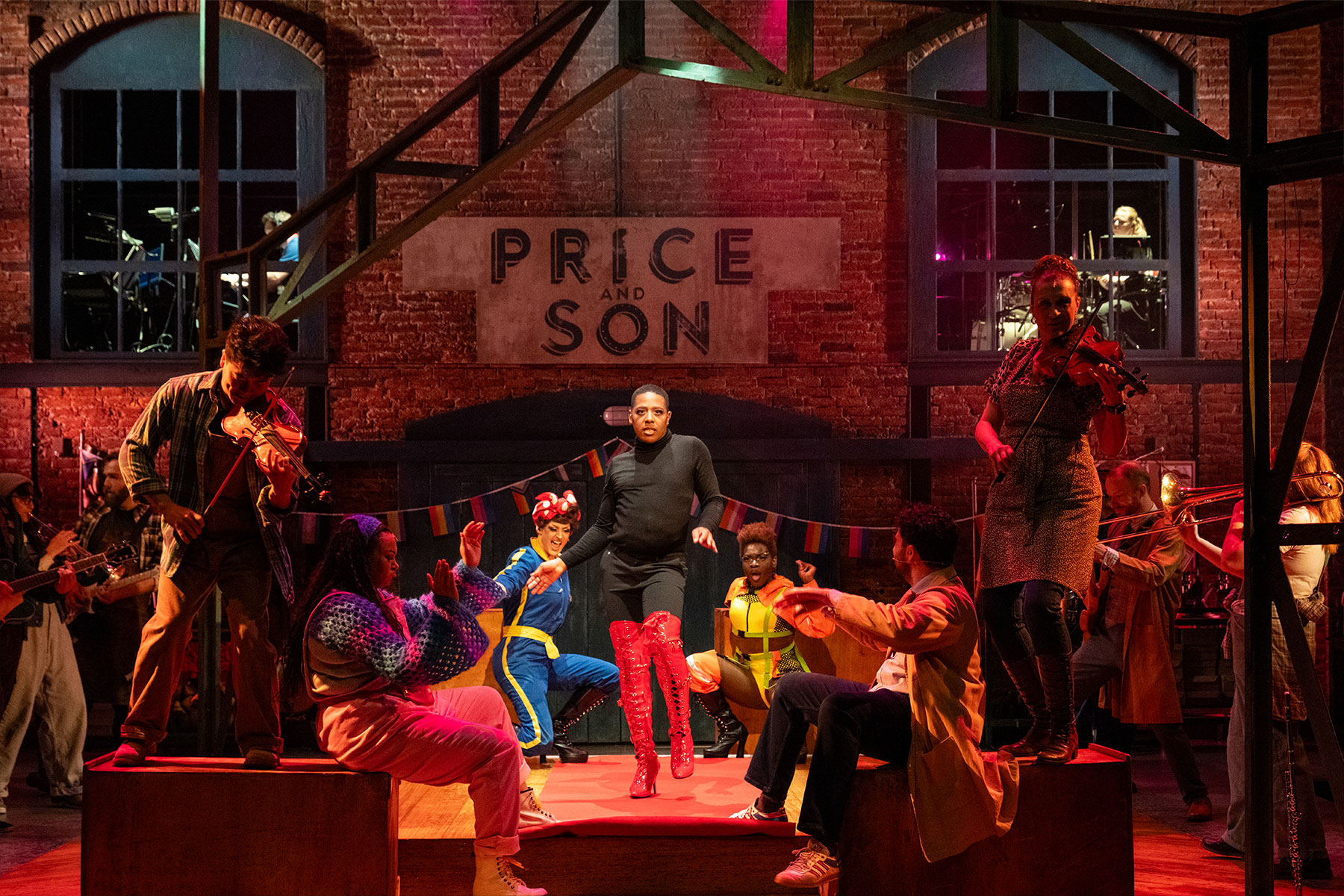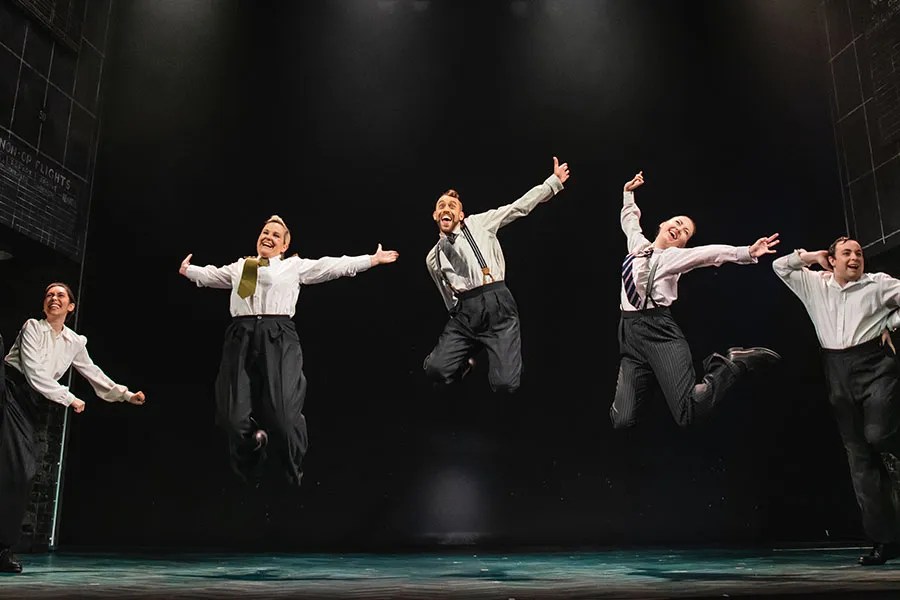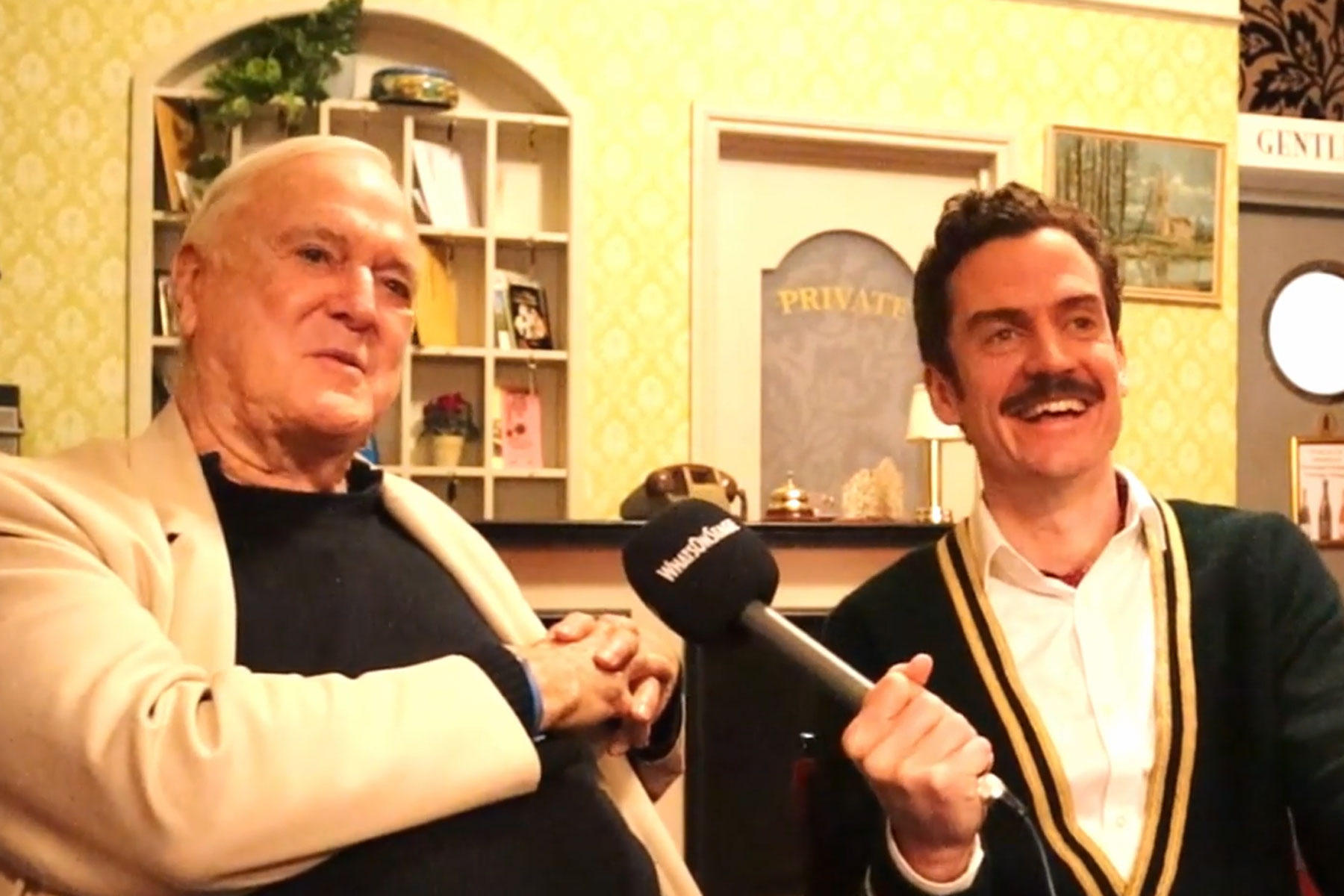Defending Jeffrey (Leeds)
Edward Petherbridge is dealing with the truth in Defending Jeffrey, receiving its world premiere at the West
Yorkshire Playhouse. The truth about performance, the truth about the role
of the audience, the truth about the actor, writer and director’s
relationship with his father. And the reality is that Petherbridge’s one-man show is an intriguing few hours in which he debunks and deconstructs theatre.
Petherbridge uses his appearance as Sir James Barrington QC in the
Jeffrey Archer play The Accused as a springboard.
He explains at the beginning of the play that Archer, a “self
confessed amateur” asked for tips and advice about the acting profession.
Lord Archer’s request obviously sowed several seeds in the stage veteran’s
active mind, resulting in a crash course in acting. Except that
Petherbridge is fully aware that acting is not the sole domain of Equity
card holders.
Politicians, a la Lord Archer, barristers and ordinary folk like you and me
are performing every minute of the day. All the world is indeed a stage.
Although many will turn up expecting Defending Jeffrey to be a
about the Archer trial, it rapidly becomes apparent that the play
is that rare theatrical event – something different, fresh and original. A
highly comical opening – Petherbridge is writing those crucial first few
lines – paves the way for courtroom drama, chunks of Shakespeare,
performance art, Pirandello, puppetry and some mid-air harness activity.
Petherbridge collapses the usual barrier between audience and performer
with a lengthy – and amusing – warm-up preamble. When speaking direct to
the audience, his performance is a stuttering, stammering chatty mess that
we can all relate to. This is intentional, creating the impression that the
script hasn’t yet been written. Then the man slips into the Richard II
speech, for example, and it’s obvious that here is an amazing performer.
Yet, at all times, the lines that separate performance and reality remain
extremely blurred.
If anything, the piece reveals that Petherbridge had a dysfunctional
relationship with his father. The pair, it transpires, were unable to
communicate. Petherbridge’s solution is to send his father to heaven, where
he can engage in a lengthy dialogue with Hamlet.
So it seems that Petherbridge does not hide behind a mask all the time – he
has chosen to reveal a great deal about himself and get some skeletons out
of the closet. Unless, that is, he was just playing a part.










